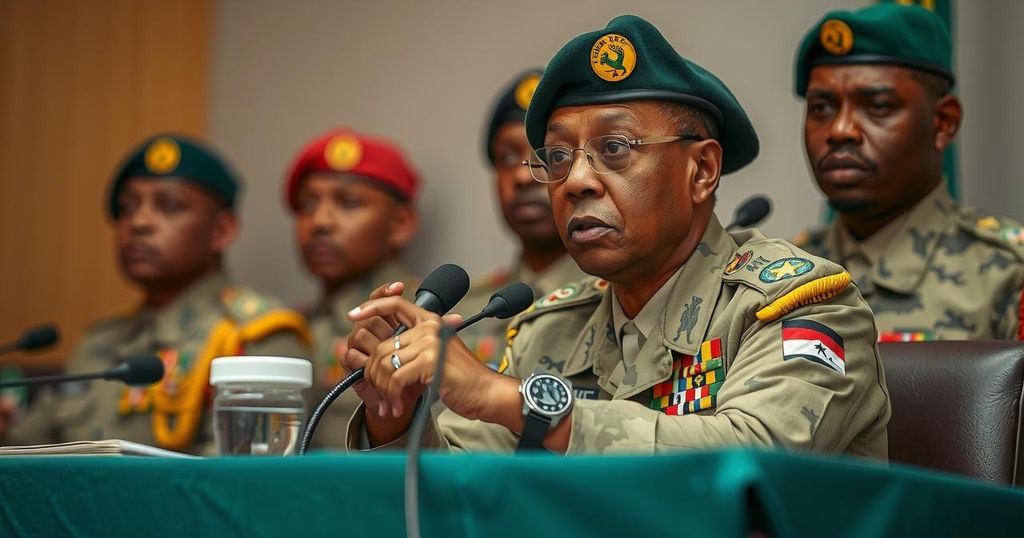Libyan PM Dabaiba Opposes Russian Military Expansion Amid Rising Tensions
Libyan Prime Minister Abdul Hamid Dabaiba has rejected Russia’s military reinforcement initiatives in eastern Libya, voicing concerns over potential foreign conflicts in the region. His government warns against military influence that could further complicate Libya’s internal strife. Dabaiba has engaged with Russian officials to seek explanations on arms transfers amid rising U.S. scrutiny of Libya’s corruption-related financial activities.
The Libyan Prime Minister, Abdul Hamid Dabaiba, has expressed strong opposition to Russia’s efforts to reinforce its military presence in eastern Libya. He emphasized that Libya should not serve as a battleground for major power conflicts, highlighting concerns that such actions would destabilize the country further. Dabaiba’s administration has been in contact with the Russian ambassador, demanding clarification on the transfer of military equipment from Syria to Libya, which he believes would exacerbate ongoing internal crises.
Dabaiba noted, “We have concerns about moving international conflicts to Libya, and that it will become a battlefield between countries.” His remarks underscore a significant shift in Libya’s stance, particularly as the country grapples with divisions between the UN-recognized government in Tripoli and the rival eastern administration supported by military leader Khalifa Haftar, which has received support from Russian forces for several years. Moreover, Dabaiba warned against the implications of foreign military influence, asserting, “No one with an ounce of patriotism wants a foreign power to impose its hegemony and authority on the country and the people.”
The situation is further complicated by economic pressures from the United States against main Libyan actors regarding corruption. The U.S. Treasury has mandated the Libyan Central Bank to halt dollar transactions until an independent auditor is appointed, indicating growing international scrutiny over Libya’s financial dealings. Observers believe that the calls for an audit may reveal links to oil smuggling and Russian involvement, possibly paving the way for sanctions against key figures.
Libya has been embroiled in conflict since the overthrow of Muammar Gaddafi in 2011, leading to a division between rival governments. The Tripoli-based government, recognized by the UN, faces significant challenges, including external military pressures, notably from Russia, which has been active in providing military support to factions in the eastern part of the country. Recent geopolitical shifts, particularly following developments in Syria, have heightened concerns that Libya may become a new arena for international tensions and military disputes, prompting the Libyan leadership to forge a more independent and patriotic stance against foreign intervention.
In conclusion, the Libyan government, under Prime Minister Abdul Hamid Dabaiba, is firmly opposing any attempts by Russia to strengthen its military foothold in the country, advocating for Libya’s sovereignty amidst complex geopolitical dynamics. As Dabaiba seeks to align more closely with Western interests, particularly the United States, the international community remains attentive to the implications of these developments on Libya’s fragile political situation. The call for audits and scrutiny of financial practices further underscores the growing need for accountability amidst ongoing crises.
Original Source: www.theguardian.com




Post Comment